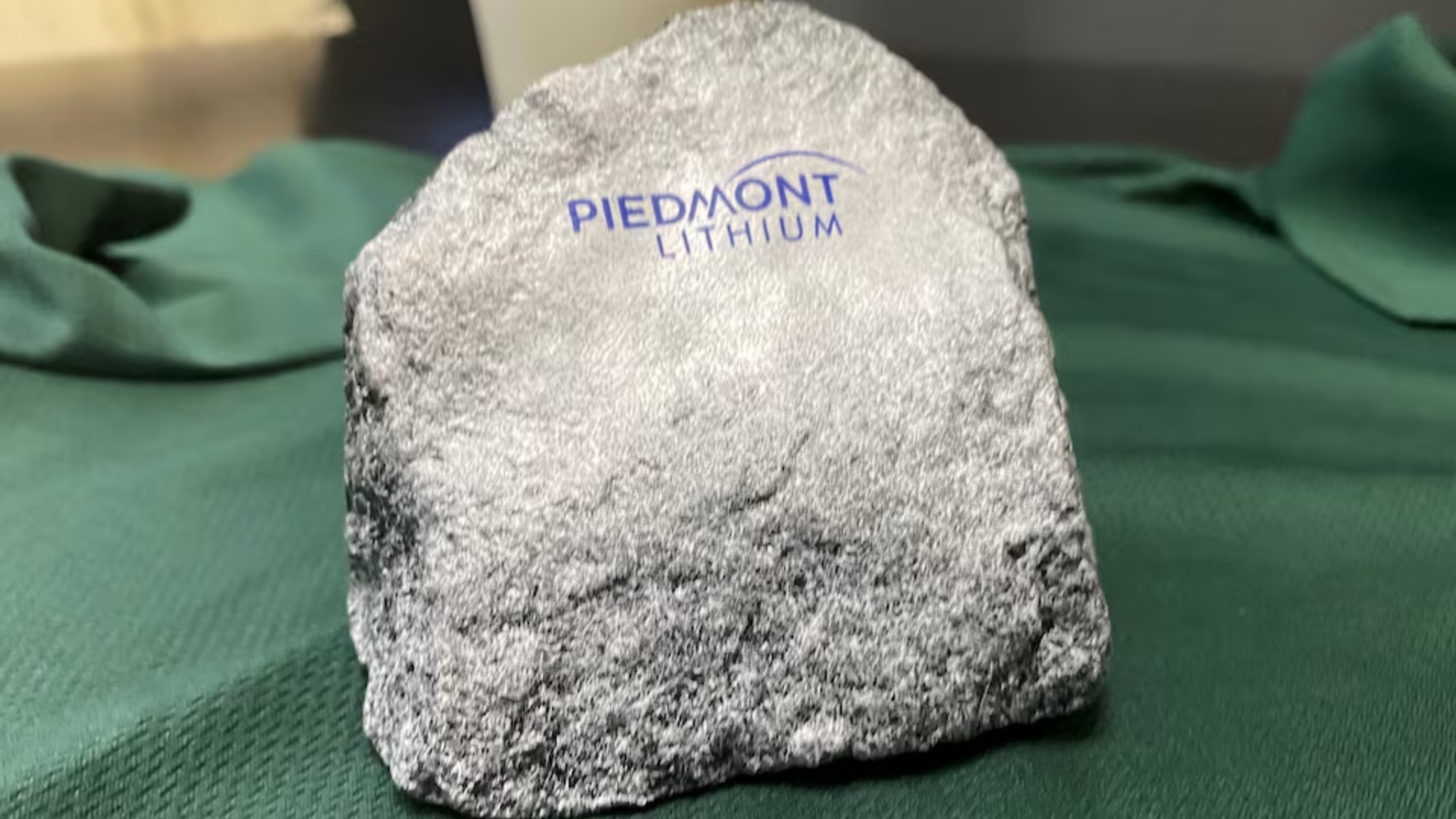(Reuters) – North Carolina regulators have approved a state mining permit for Tesla supplier Piedmont Lithium to develop one of the largest U.S. sources of the key electric vehicle battery metal, although key financing and local regulatory challenges remain.
The approval from the North Carolina Department of Environmental Quality, which was announced by the company on Monday and is conditional on the posting of a $1 million reclamation bond, removes one major hurdle to Piedmont’s plans to tap a large lithium deposit just outside Charlotte.
Shares in the company, which first applied for the permit in August 2021, rose 15.9% to close at $14.68 on Monday. The state in 2022 had turned down an application from an unrelated company to expand a quarry.
The go-ahead for the 500-foot-deep mine comes despite widespread opposition from neighbors worried about water, noise pollution and other potential problems.
The years-long opposition to the project, which would become one of the few lithium-producing sites in the U.S, illustrates broadening tension in the country, as resistance to living near a mine clashes with the potential of EVs to mitigate climate change.
Piedmont must still obtain a local zoning variance and financing for the project, estimated to cost more than $1 billion. The company has applied for U.S. Department of Energy loans via a program through which rivals ioneer and Lithium Americas have already obtained financing.
Asked when Piedmont would pay the reclamation bond, Piedmont CEO Keith Phillips told Reuters that the company is “taking steps to put the bond in place as soon as possible.”
Piedmont agreed to a deal with Tesla last year to supply spodumene concentrate, a key raw material for making batteries, to the auto giant through 2025, with an option to renew it for another three years.
CHANGES TO DESIGN
The state review process involved the submission of thousands of pages of documents, multiple requests for additional information, and at least three deadline extensions for Piedmont.
As a condition of obtaining the permit, state officials are requiring the company to conduct regular water quality and water table levels tests, and to line a waste storage pit with a synthetic liner, a departure from the typical requirement for an earthen liner.
State officials had expressed “many concerns” about Piedmont’s plans to discharge chemicals into the public sewer system, according to regulatory filings.
Piedmont, which also is working on lithium projects in Tennessee, Ghana and Quebec, must still obtain state air quality and wastewater permits, both of which are routine for mining projects in the state.
Importantly, Piedmont must also receive a zoning variance from officials in Gaston County, where the project has been opposed by several county commissioners.
Phillips told Reuters the company plans to “consider the timing of our re-zoning effort in the context of multiple variables,” including financing as well as “the window of opportunity with the current Gaston County Board of Commissioners.” Four of the board’s seven members have terms that will end this December.
Phillips on Sunday had phoned Chad Brown, chair of the county board of commissioners, to discuss the state’s decision and ask for a meeting. Brown said he was open to meeting with Piedmont, but that the board would not consider the zoning variance until July at the earliest due to the county’s annual budget review process.
“We will not rush into anything. We’ll listen to Piedmont, and we’ll see what happens,” Brown told Reuters. “This mine would have a big economic impact on the county, but it also could have tremendous environmental impacts.”
Despite spending years buying acreage, hiring investment bankers and inking a supply deal with Tesla, Piedmont did not approach county commissioners until July 2021 with its plans.
The company also did not apply for a state mining permit until the following month. Those strategic missteps have fueled mistrust across the county of roughly 220,000. Brown said he has not spoken to Phillips since that 2021 meeting.
Low lithium prices may also hobble Piedmont’s financing attempts, analysts said.
“Finding external capital for a new lithium project could prove difficult at current lithium prices, though it will help that Carolina Lithium is very low on the cost curve,” said brokerage TD Cowen on Monday.
Meanwhile Albemarle (ALB.N), opens new tab, the world’s biggest lithium miner, is hiring staff and buying land in a neighboring North Carolina county amid plans to re-open a mothballed spodumene lithium mine that would compete directly with Piedmont.
Reporting by Ernest Scheyder; additional reporting by Sourasis Bose in Bengaluru; Editing by Anil D’Silva, Tasim Zahid, Jan Harvey and Marguerita Choy









